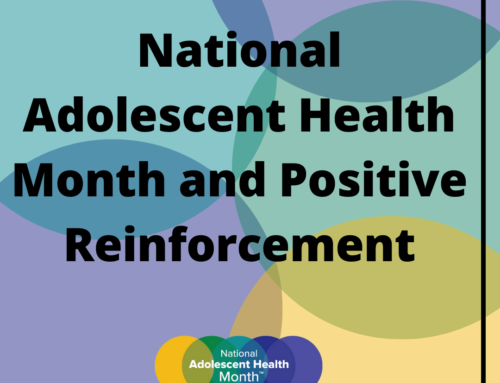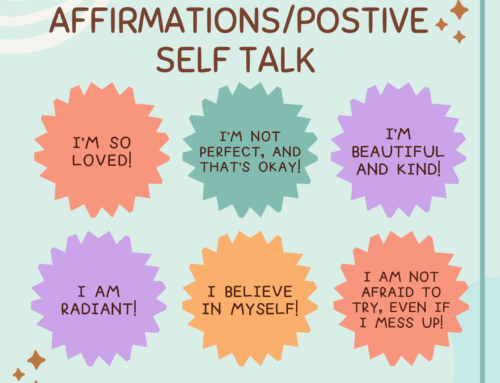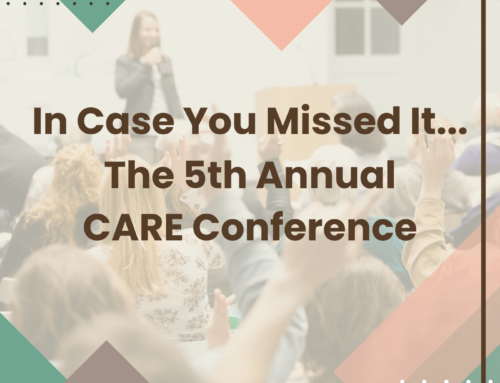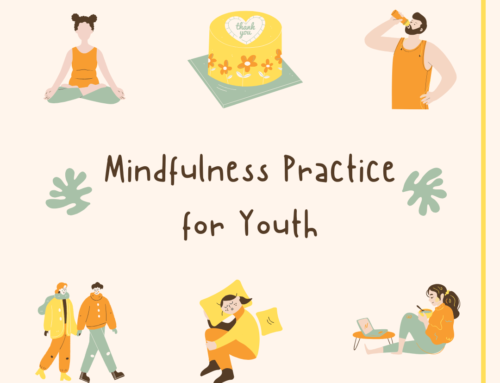Check On Your Friends. All Your Friends.
Greeting readers!
Every year during May, National Mental Health Month is observed, and this week, we are taking time to highlight just that. Pause for a moment and think about the happiest person you know. This person may be the life of the party, or they are known for always cracking jokes, or maybe they have the biggest, brightest contagious smile. Hold that thought, and we will talk about it momentarily. Before we dive in, here are this week’s affirmations:
I am proud of myself for making it this far.
I will make my friendships beautiful and fulfilling.
Loving myself lets me love other people genuinely.
Do you still have that person in mind (the one we asked about above, the happiest person you know)? Whoever that person is, you may think of words like happy, strong, carefree, cheerful, always smiling, etc. These are all beautiful descriptors of someone, but sometimes when we associate these words strongly with someone, we tend to forget that that same person can also be words like struggling, sad, heartbroken, lonely, etc. When we only see a person for positive words, sometimes it can trick us into thinking that the person truly is ONLY happy or carefree, and we forget that they may be hurt by something that happened or may be feeling overwhelmed with what is going on in their lives. They are still people going through life and all the ups and downs that come with it. Their mental health still matters. We could spend days going on, but we want to jump to the point instead.
The point: Check on your happy friends, your firm friends, and your positive friends. Check on your sad friends, your quiet friends, and your busy friends. Check on your friends. ALL your friends.
Now you may have some questions:
How do I check on my friends? What does it mean to check on my friends?
Again, we could be here all day going into how to do this, so please remember that we are going for simple. We want to make sure the process is clear because, frequently, our normal human reactions are to avoid anything we perceive as too complicated. So here is simple;
Ask them how they are doing… and how they are doing.
Stop talking, and listen.
Okay, so that was the simple explanation. If you’re looking for more, keep reading because we will explain a little further.
- Ask them how they are doing… and how they are doing, really.
- It may sound something like this; “Hey, how are you doing today?”, “What’s on your mind?”, “I was just thinking of you and wanted to check in and see how you are doing.” “Hi friend, I know you’ve recently gone through ___. How are you feeling?”
- A trick is to ask open-ended questions (these are questions that cannot be answered with a yes or no), because it allows for more detailed answers.
- Keep in mind some people may answer with statements like “I’m good”, “I’m fine”, or even “Oh you know me, I’ll be okay”. There are many reasons why someone may not tell you straight away how they are doing or feeling. If you get a short answer like this, try asking again or asking them differently.
- Stop talking, and listen. You just asked them a question, so now is the time to sit back and really listen (try active listening) for the answer.
- If they do not answer right away, sit in silence (yes, silence is perfectly okay in a conversation). Allow them time to think and to tell you how they feel. After all, that is why you asked, right?
- Remember, here we are listening. Not trying to solve the problem, offering advice, or sharing our own experiences. Just listening without the need to share.
- Sometimes, people may wait to tell you exactly what is bothering them right away. Or, they might just not be ready to talk at that moment (and no one likes to be pushed or pressured). In these cases, a third step may be necessary. Let them know that you are there for them when they are ready.
- This may sound like; “I care about you and want you to know that I am here to listen any time you need to talk.”, “We all struggle sometimes, and that is okay. You are not alone”, “I am going to check on you again later.” “I understand if you do not want to talk now. I will be here whenever you are ready.”
- The key here, is to let them know that you genuinely care and are there for them, and that asking them how they were doing wasn’t just a formality. So, make sure to follow up again with them at a later time.
Here’s how YOU can be a Prevention Partner:
Check on your friends! All your friends. Follow the tips above if you aren’t sure where to start.
If you have ideas of things to say or do to check on your friends, please share them with us below in the comment section. You never know who it may help.
Don’t stop learning! Learn more by visiting Mental Health America’s “Just Checking In on Friends”
Mental Health is an important topic, so keep going! Make sure to check out two of our other Mental Health Month Blog posts.
If you would like to learn more about mindfulness skills, CARE offers CARE’s Soothing Place for teens and parents to support you on your journey into yourself. For more information and resources, please visit our Soothing Place on the CARE website.
If you or someone you care about is feeling overwhelmed with emotions like sadness, depression, or anxiety, or feel like you want to harm yourself or others:
- Call 911
- Call 988
- Visit the Disaster Distress Helpline, call 1-800-985-5990, or text TalkWithUs to 66746
- Visit the National Domestic Violence Hotline or call 1-800-799-7233 and TTY 1-800-787-3224
For the youth, if you know you or your friends need immediate help, call Teen Lifeline. Teen Lifeline is a 24-7 crisis line for teens where teens can call or text another teen about any problems or issues they are facing. This resource is also available to parents and families for support.
- In Maricopa County: 602-248-8336 (TEEN)
- Outside Maricopa County: 1-800-248-8336 (TEEN)
- Outside Arizona/Nationally: 1-877-YOUTHLINE or 1-800-SUICIDE






